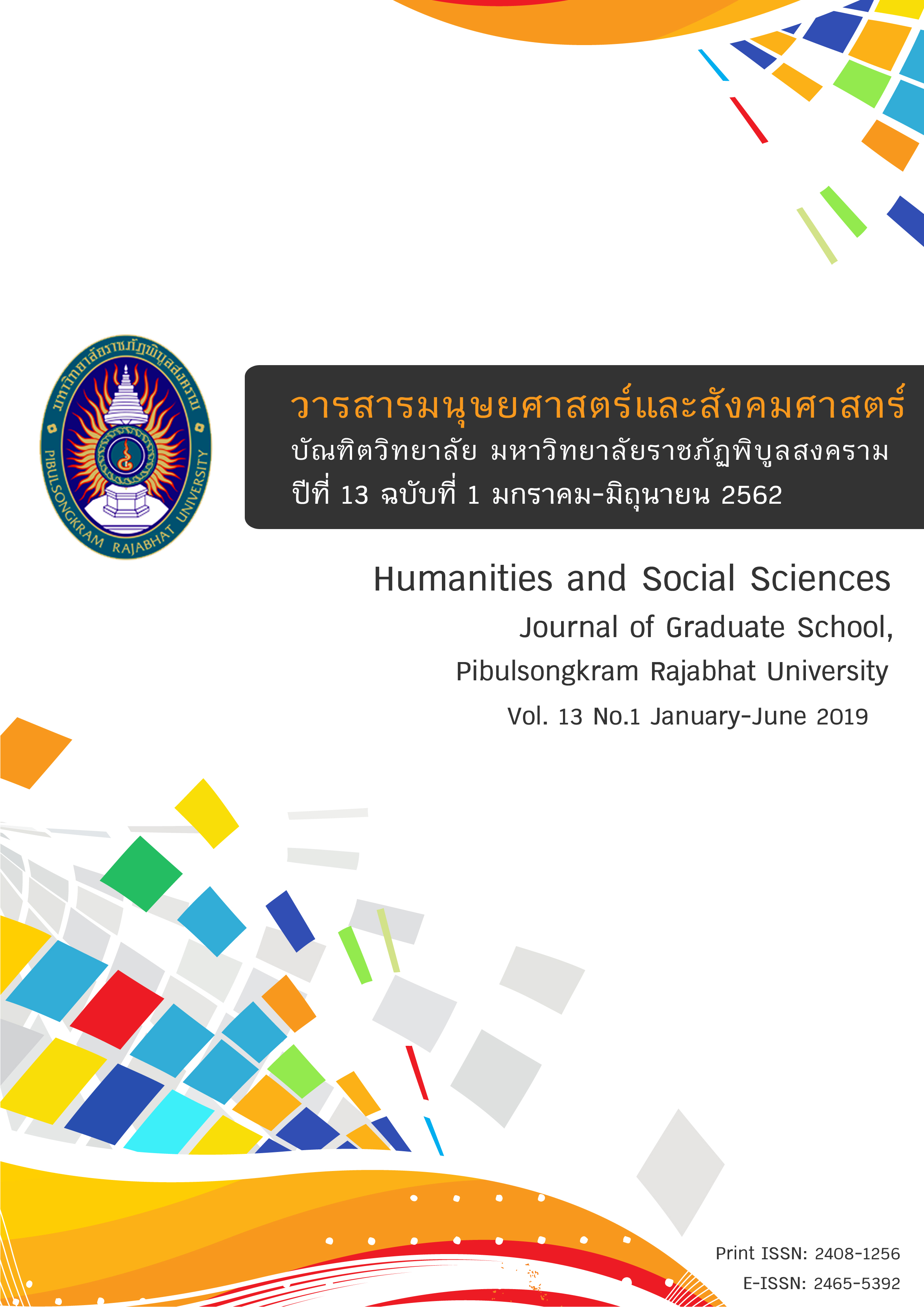Comparing the Effectiveness of Rote Learning and Meaningful Learning on English Vocabulary Memorization for 7th Grade Students at Padoongrasdra School
Keywords:
Vocabulary, Rote Learning, Meaningful Learning, EffectivenessAbstract
This study aimed 1) to investigate the degree of effectiveness of both rote learning and meaningful learning on English vocabulary memorization, and 2) to compare the effectiveness of these two learning approaches on English vocabulary memorization for students. The population for this research consisted of 193 students. The participants were 83 students chosen by clustered random sampling. Two groups of students endured 6-weeks of rote learning and meaningful learning respectively. Data were collected through pretest and posttest. Findings revealed that both rote learning and meaningful learning significantly improved students' performance on English vocabulary memorization; moreover, it was discovered that meaningful learning was not more effective than rote learning on English vocabulary memorization for students. Suggestions: 1) both teachers and students should reconsider biased opinions concerning rote learning and judge the effectiveness of its use through personal experience, and 2) educational institutes should not unquestioningly overlook the practicability of rote learning or overestimate the effectiveness of meaningful learning.
References
Battino, R. (1992). On the importance of rote learning. Journal of Chemical Education, 69(2), 135-137. Retrieved June 23, 2011, from https://pubs.acs.org/
Boon, F. A. (2008). Comparing the effectiveness of rote and meaningful instruction and exercises for learning topographical facts (Master’s Thesis). University of Utrecht. Retrieved from https://is.gd/IDNAmb
Nirattisai, S., & Chiramanee, T. (2014). Vocabulary Learning Strategies of Thai University Students and Its Relationship to Vocabulary Size. International Journal of English Language Education, 2(1), 273-287.
Novak, J. (2010). Learning, Creating, and Using Knowledge: Concept maps as facilitative tools in schools and corporations. Journal of e-Learning and Knowledge Society, 6(3), 21-30.
Saengpakdeejit, R. (2014). Strategies for Dealing with Vocabulary Learning Problems by Thai University Students. Humanities, Arts and Social Sciences Studies (HASSS), 14(1), 147-167.
Stenger, M. (2014). The Serious Limitation of Rote Memorisation You Probably Don't Know About (And It's Undermining Learning). The serious limitation of rote memorization you probably don't know about (and it's undermining learning). Retrieved September 14, 2014, from https://is.gd/CfeLPs
Team, R. 2. (2012). What is Rote Learning-and is it Effective? A Battle Between Memory and Intelligence. What is rote learning? A battle between memory and intellig-ence. Retrieved November 6, 2012, from https://is.gd/1CeU5q
The Ministry of Education Thailand. (2008). The basic education core curriculum B.E. 2551 (A.D. 2008). Retrieved from http://www.act.ac.th/document/1741.pdf
Vallori, A. B. (2014). Meaningful Learning in Practice. Journal of Education and Human Development, 3(4), 199-209.
West, M. (2011). Visual and auditory learning-how to teach it. Retrieved November 8, 2011, from https://www.youtube.com/watch?v=KyAaxHvUGog
Downloads
Published
How to Cite
Issue
Section
License
Any articles or comments appearing in the Journal of Humanities and Social Sciences, Rajabhat Phibulsongkram University, are the intellectual property of the authors, and do not necessarily reflect the views of the editorial board. Published articles are copyrighted by the Journal of Humanities and Social Sciences, Rajabhat Phibulsongkram University.









